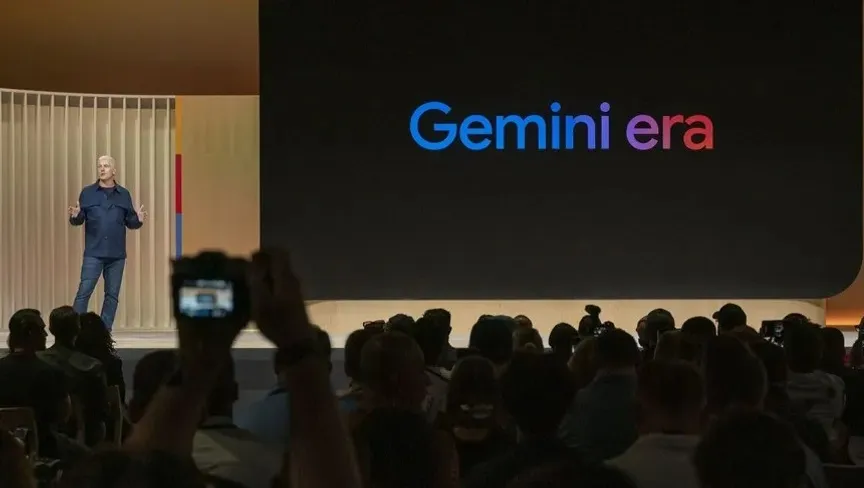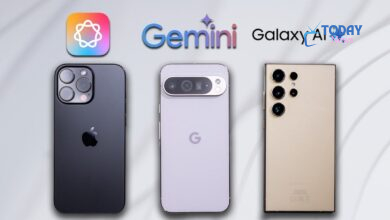
Google’s 2025 Strategy: AI Takes Center Stage
Google has outlined its strategy for 2025, a year it considers “critical,” with a focus on prioritizing the development of its AI assistant Gemini to increase its share of the growing AI market and catch up with competitors, particularly ChatGPT by OpenAI.
In a leaked audio clip from an internal meeting, shared by CNBC, Google CEO Sundar Pichai warned of “high risks in 2025” due to regulatory challenges, fierce competition, and the rapid evolution of AI technology.
Key Focus Areas for Google in 2025
- Gemini AI Assistant:
- Google aims to enhance Gemini to make it more competitive with ChatGPT and other AI models.
- The goal is to reach 500 million users, adding to its existing portfolio of 15 apps that have each achieved this milestone.
- AI-Powered Services and Tools:
- Pichai emphasized that the strongest competition in the AI market will revolve around services and tools that rely on advanced models, making users’ lives easier and more efficient.
- Google plans to focus on delivering superior user experiences and being “the best in the service sector.”
- Project Astra:
- Google’s Project Astra, showcased at the I/O 2024 conference, is part of its vision for a general-purpose AI assistant.
- Astra can understand images, videos, sounds, and languages input via a user’s smartphone, leveraging components like the microphone and camera.
- It provides accurate responses by integrating Google Search, Google Maps, and Google Lens, with a strong memory for past conversations and short-term memory of up to 10 minutes.
Challenges and Risks
- Regulatory Hurdles: Google faces ongoing antitrust investigations and accusations of monopolizing the search market.
- Intense Competition: Competitors like OpenAI, Microsoft, and others are advancing rapidly in AI.
- Technological Evolution: Keeping up with the fast-paced development of AI technology is a constant challenge.
Google’s Vision for the Future
- General-Purpose AI Assistant: Google DeepMind’s head, Demis Hassabis, stated that the company is working intensively to develop Gemini and other applications, aiming to create an AI assistant capable of handling any task, data type, or device.
- User-Centric Innovation: Google’s focus remains on delivering tools and services that simplify users’ daily lives and enhance productivity.
AI Agents: A Key Focus for Google
Through its experimental Project Mariner, Google is focusing on developing AI agents that can assist users in accomplishing multiple tasks. The initiative will begin within its Google Chrome browser.
Key Developments in AI Agents
- Jules: AI Coding Assistant:
- Google has developed an AI assistant named Jules to help with coding tasks.
- Jules identifies the problem or coding task, writes the necessary code, and executes it—all under the supervision of a human programmer.
- Pricing Strategy:
- When asked whether Google would raise the price of its Gemini Advanced subscription from $20 to $200 (similar to OpenAI’s ChatGPT Pro), Demis Hassabis clarified that the company has no plans to increase prices at this time, as its current pricing is appropriate.
- Google Labs Experiments:
- Josh Woodward, head of Google Labs, showcased six experimental projects in just eight minutes, including Mariner and Jules.
- One notable feature in NotebookLM allows users to have a phone-like conversation with AI-generated voice interactions, which is still in testing.
Challenges and Focus
- Cost-Cutting Measures: Google reduced its workforce by 6% in 2023 and continues to cut expenses, with its current employee count down by 5% compared to the end of 2022.
- Maintaining Focus: CEO Sundar Pichai emphasized the importance of staying focused and not getting distracted. He highlighted that “constraints often lead to creativity” and that “not all problems are solved by the number of employees.”




